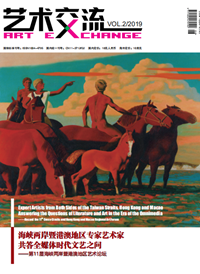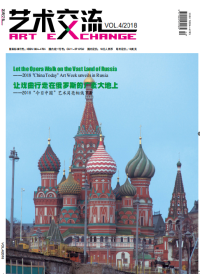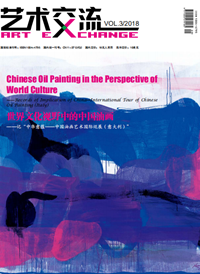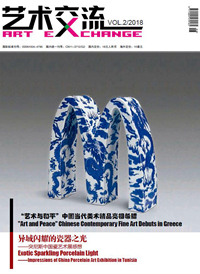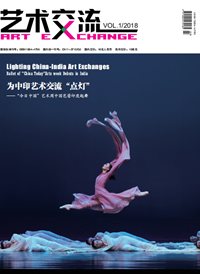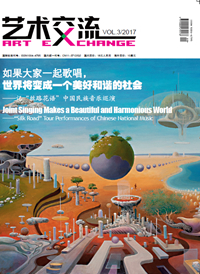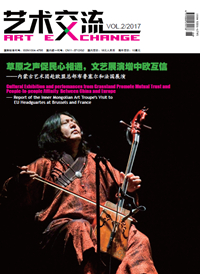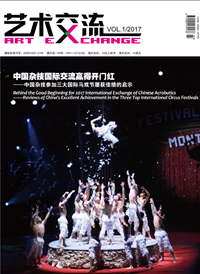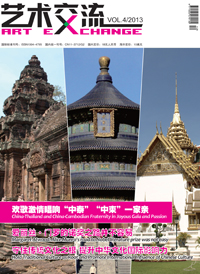
Mo Yan at the French Saint Malo Book Fair in June 2006
Upon entering Mo Yan’s simple house, I suddenly recollected a short word by writer Qiao Liang during the 7th National Congress of China Writers’ Association in 2006. “People always complain that master is no longer available in our time, but I don’t agree with such unreasonable self-denial. As a matter of fact, some masters such as Mo Yan and Wang Anyi are already there though they are not yet commonly recognized. Whether in quantity of publication or in artistry level, they have surmounted their predecessors.” Qiao frankly uttered, which then aroused my strong sympathy.
Even the truth is relatively correct, and similarly, master ought to be considered in a certain circumstance. One can be a master in some historical period and it is by no means necessary to be an eternal master with a perfect criterion. Therefore, when I was seated on the sofa, this occurred to me and I told this story to Mo Yan.
Mo Yan was sitting in a wooden crouch with eyes half closed. When I finished my telling, he said to me in a low and soft voice, “My friend, master is the title given only after the writer passed away. I’m still living for writing.” “Does it matter? This magnificent century is one of the best ages for literature masters. Don’t you think it will be encouraging for us?” I argued. Then Mo rose from his crouch without any change in facial expression and asked, “What would you like to drink, green tea or black tea?”
In primary school, composition was the only thing Mo Yan could be proud of, and after he joined the army, Mo, as a newcomer, made various efforts such as bulletin design, broadcast script and giving lessons. In July 1984, he was enrolled into the Department of Literature of PLA Art Academy with runner-up achievement in cultural test and champion achievement in professional test.
As to Red Sorghum, the representative novel by Mo Yan, it had an interesting source. In the seminar concerning military novels in 1985, a batch of older writers expressed their worries, “Within four years of Patriotic War by USSR, many excellent novels were created. Now we are too old to continue writing and young writers never experienced war. What will be our solution?”
“Solution?” Mo Yan replied immediately, “Though we never experienced war, we all participated in military maneuver. Though we never killed enemy, we killed pigs and roosters. Why can’t we write a military novel? Take it easy, we are 100 percent capable.” Such a bold reply made an old expert angry, who stood up and refuted, “Young man, don’t be so arrogant!”
Naturally, argument will lead to no solutions, and only the writing will give the answer. As Mo said, he was then determined to create a couple of military novels to show his qualifications. Then a series of military novels such as Red Sorghum, Sorghum Funeral and The Odd Dead were consecutively published. From then on, Mo Yan received increasing focus, acceptation, favor and criticism in his motherland and even the whole world with heightened influence.
“For decades, I have been persisting in direct presentation of reality and human life. However, as a writer is not a politician, my novel is not a critic. If you read most of my novels such as The Garlic Ballads, Big Breasts & Wide Hips, The Republic of Wine and lately published Frog, you will realize that I have never been separated from the worst realistic contradiction and conflict. Instead of criticism on a certain policy, the objective of writing is to analyze human nature and realize self-redemption by writing about people’s spirits and confession, all of which, in my opinion, is what a writer is supposed and able to do.” Mo Yan concluded.

Mo Yan in Hokkaido in 2004

During the Course of Artistic Inspiration Collection



